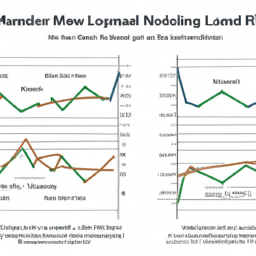Investing in mutual funds is one of the easiest ways to diversify your portfolio without having to determine which individual stocks and bonds to buy. Mutual funds pool money from investors to purchase a variety of assets, making it easier for individual investors to access a diversified portfolio. There are two types of mutual funds: load and no-load.
Load mutual funds charge a sales commission or fee when you buy or sell shares of the fund. This fee is typically a percentage of your investment, and it goes to the broker or financial advisor who sells you the fund. No-load mutual funds, on the other hand, do not charge a sales commission or fee. This means that all of your money goes directly into the fund, and you are not paying any extra costs to buy or sell shares.
Load mutual funds may seem like a bad deal because you are paying extra fees, but they can be beneficial in some cases. If you work with a financial advisor or broker who is providing you with valuable advice and guidance, it may be worth paying the commission to access their services. Additionally, load mutual funds may offer more options and flexibility than no-load funds, so you can find a fund that meets your specific investment needs.
No-load mutual funds, on the other hand, are a good choice for investors who want to keep costs low and invest directly in the fund without paying any extra fees. No-load funds are also a good option for investors who prefer to manage their own investments and do not need the guidance of a financial advisor or broker.
When comparing load and no-load mutual funds, it's important to consider the expense ratio of the fund in addition to any sales commissions or fees. The expense ratio is the annual fee that the fund charges to cover its operating costs. This fee is expressed as a percentage of the fund's assets under management. No-load funds typically have lower expense ratios than load funds, which can make them more attractive to cost-conscious investors.
Here are our picks for the best 25 no-load mutual funds: what makes them tick, and what kind of returns they've delivered. Our listing of the best mutual funds sticks to U.S. and international equity funds, plus one allocation fund and one short-term bond fund. These funds have a track record of delivering solid returns while keeping costs low.
One of the most popular no-load mutual fund companies is Vanguard. Vanguard offers a variety of low-cost index funds and actively managed funds that cover a wide range of asset classes and investment styles. Investing in Vanguard mutual funds like VGPMX, VWNDX, VSTCX, VASVX, and VQNPX can help you earn stellar returns amid uncertain market conditions.
What Is a Sales Load in Simple Terms? When an investor purchases or redeems shares of a mutual fund, the agent or broker who facilitates the transaction may charge a commission or fee for their services. This commission is known as a sales load. Load mutual funds may charge a front-end load, which is a fee that is paid when you buy shares, or a back-end load, which is a fee that is paid when you sell shares. Some load funds may also charge an ongoing fee called a 12b-1 fee, which is used to cover marketing and distribution expenses.
Mutual funds are a popular way to invest because they let you pool your money with money from other investors to buy into a portfolio of diversified assets. Whether you choose a load or no-load fund, it's important to consider the fees and expenses associated with the fund, as well as its past performance and investment strategy. By doing your research and selecting the right mutual fund for your investment goals, you can achieve a diversified portfolio that can help you reach your financial goals.
